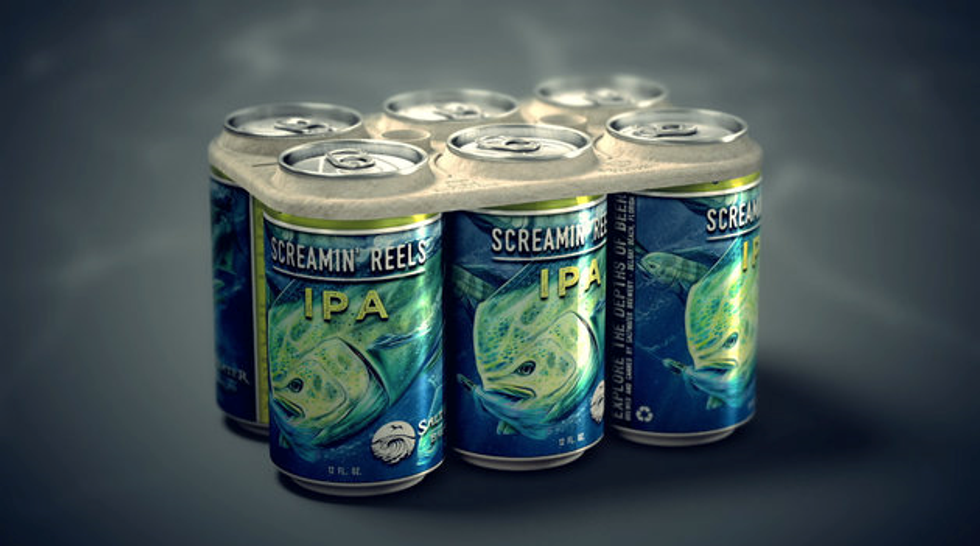As you probably already know, plastic six pack rings have long been an environmental concern, particularly endangering marine wildlife.
Animals have often been found caught in these rings: in most cases strangled to death, or in the case of Peanut the famously hourglass-shaped Turtle, permanently deformed. There are many other harmful effects of plastic in our oceans. Even when we cut our six pack rings before disposing of them, there is still the danger that animals will accidentally ingest the plastic which can be fatal.
But fear not, beer-loving environmentalists! The innovative company We Believers has launched a brilliant, environmentally-friendly alternative to plastic six pack rings in order to preserve marine life. Saltwater Brewery will be the first to utilize these edible six-pack rings that can feed, rather than harm, marine life. In addition to being edible, they are also biodegradable and compostable.
This alternative packaging cleverly use the beer by-products that are left behind in the brewing process. About 80% of the formula is wheat and barley. The eco-friendly six pack rings are still tough enough to support the weight of six full cans.
Since the announcement was posted on the company's Facebook page in mid-May, it has gained tremendous support, with over 2,000 likes and shares.
Though these biodegradable versions of the rings are more expensive to produce, they ultimately reduce waste and maintain wildlife, so it is Saltwater Brewery's hope that people will be willing to spend a little more.
Saltwater believes that if more breweries adopt this style of packaging, it will drive down the price of production until the usage of edible rings are competitive with the standard plastic version.
According to Marco Vega, co-founder We Believers, global breweries have already begun showing interest in using the eco-friendly alternative for their own product. "The conversation around sustainable packaging will never be the same. It can be done," Vega said, "I think it just sets the bar really high, but reachable. We can get plastic out of the oceans.”




















